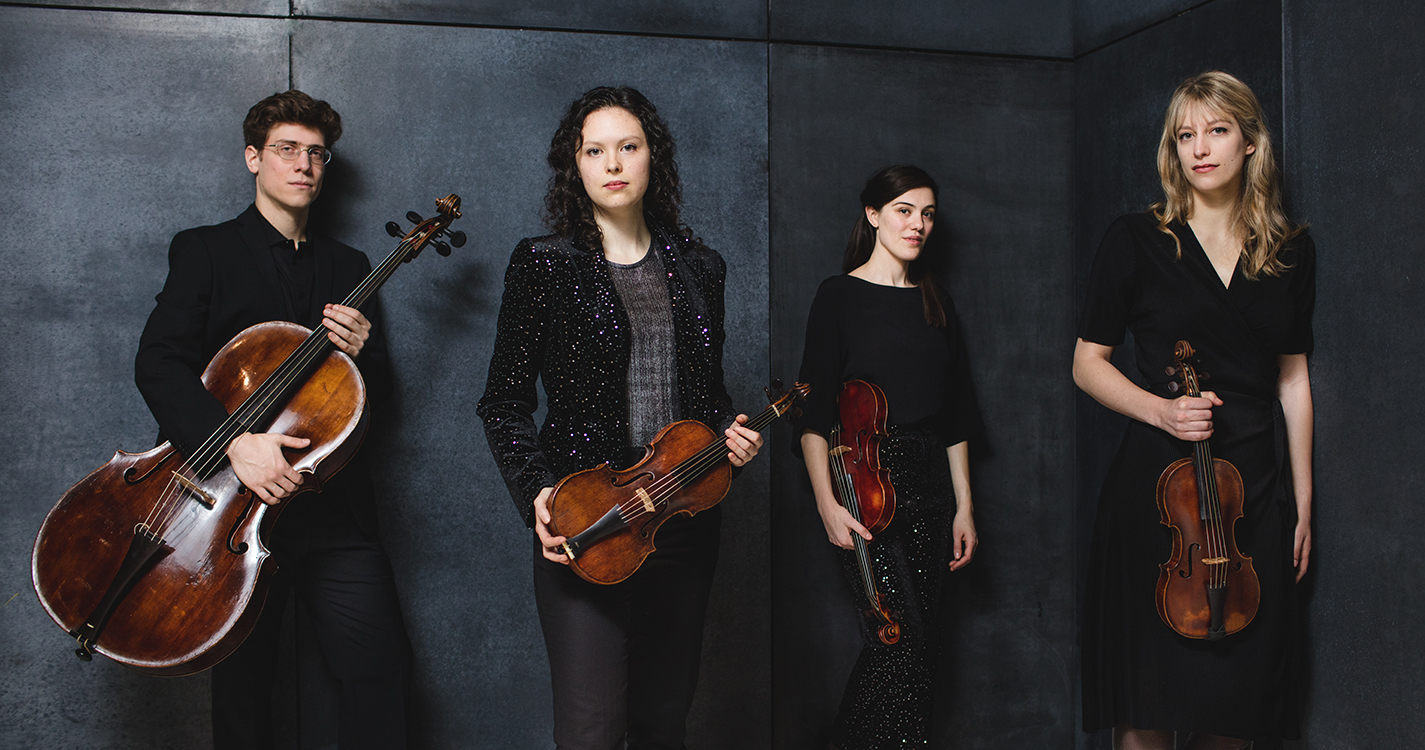When Chloe Prendergast ’14 played the famed Waller Hall violin as a student, it was as if she'd stepped into her future.
For most of her academic career, she was given the honor of playing the 17th- or 18th-century Italian violin, which had been discovered underneath the floorboards of Waller Hall during a 1989 restoration. She would later go on to specialize in the very style of music it was designed to play.
Prendergast now lives in the Netherlands. After she graduated, she founded her own string quartet, became a member of an orchestra and performed in various ensembles, festivals and concerts, in the U.S. and abroad.
Willamette helped her dream, she said. As an undergraduate, she could create any opportunity she wanted.
“I had the space to think about what I really wanted to do and what I needed to make that happen,” she said.
Freedom to play
Inspiration to play the baroque violin struck Prendergast early on.
She started violin at age 8 and her mom is a member of the Denver-based Baroque Chamber Orchestra of Colorado. She knew she wanted to specialize in 17th and 18th-century European classical music, known as early music, and became more serious about the instrument as a teenager.
Hearing baroque music performed on period instruments, first with the Colorado orchestra then other groups as well, changed her perspective of the music, she said. "The way this created emotional narrative and characters in the music made a huge impact on me and the way I saw classical music," she said.
She didn’t want to apply to a conservatory just yet. A diversity of thought, curriculum and classmates was her priority, so at Willamette she found a place where she could dive in.
The only modern violin performance major at the time, Prendergast joined the chamber orchestra, opera orchestra, a piano trio and a string quartet. She was a member of the Willamette Contemporary Ensemble and the Willamette Chamber Choir. Along the way, she also participated in the Salem Chamber Orchestra, the Castleman Quartet Program and became the recipient of numerous scholarships.
Music students here are encouraged to make the most of their artistic potential. Concerts could largely be performed at students’ will, said Prendergast, and she fondly remembers spending many late nights practicing at Hudson Hall, just because she could.
“The support from faculty and fellow students was so strong,” she said. “Everybody really cared about what everyone else was doing. The approach was, ‘Go for it. How can we help?’”
The connections she made at Willamette often transcended the classroom. For several years, Prendergast studied under visiting professor Anthea Kreston, a violinist who was once a member of the world-renowned Artemis String Quartet. After she graduated and moved to the Netherlands, Prendergast met up with Kreston every time she had a nearby performance and got to know her family.
“Our relationship evolved from her being my teacher to now my colleague,” she said.
Entry to early music
For students who want to study early music, the Netherlands is an obvious choice: the Royal Conservatory of Music in The Hague has one of the most renowned programs in the world.
Prendergast didn’t audition there immediately after graduating from Willamette. She first learned to play the baroque violin, which required relearning an instrument she’d spent years mastering. That meant no chin or shoulder rest, a shorter fingerboard, gut cords instead of metal strings and adjusting to a different way of creating sound.
She also took some time off. She briefly pursued early music in grad school in Washington state then studied under Julia Wedman of Tafelmusik, a baroque orchestra and chamber choir, in Toronto. Wedman encouraged Prendergast to study with Kati Debretzeni, a baroque and classical violin instructor at the Royal Conservatory.
In 2016, Prendergast started her Master of Music in Baroque at the conservatory. Over the next three years, she freelanced and performed in festivals. She auditioned and became a member of the orchestra Holland Baroque and formed the Butter Quartet as the result of a required conservatory class.
Prendergast’s various performances introduced her to a broad circle of musicians she now interviews for Outside the MusicBox, a podcast she started during the pandemic. It’s a concert series that helps make classical music more accessible to non-enthusiasts through conversations and explanations. And Willamette’s influence continues: in one episode, Prendergast and her co-host tried to unpack in two minutes a technique former Swindells Professor of Music John Peel took an entire month to explain, she said.
Prendergasts’s position in Holland Baroque has also allowed her to work with a stunning array of artists, from Wu Wei, a jazz and classical virtuoso who plays the Chinese mouth organ, to the London Community Gospel Choir and an upcoming collaboration with country and blues musician Rhiannon Giddens. Prendergast’s career is beyond her wildest dreams, she said.
“When I was a student at Willamette, I didn’t know this kind of life was possible. I didn't know how happy I would feel doing what I do now,” she said.


